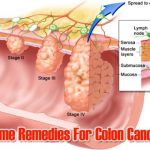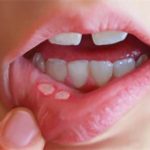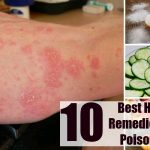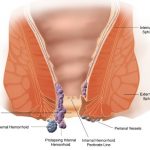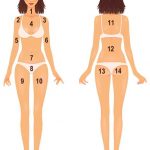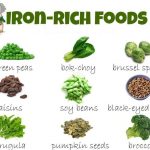How to use home remedies for depression and anxiety? I’ve been on depression medication since I was 9 years old, well precisely, it was approved for anxiety at the outset, but soon I was treated for both. In third grade I was capable to say, rather inelegantly, “I am taking chill pills because there is an unevenness of serotonin in my brain.” Depression is identical to a worn out unwanted buddy that constantly clings to me, a load, yes, but extremely recognizable. Through the years I have understood that there are a lot of things that I can do that, don’t oblige prescription medications to help keep my mood fluctuations under control. They take time and effort (there is no quick and easy settle!), but it is well worth it in my mind. I still have not deterred myself off of my medications entirely, but it is an objective that I someday want to attain and one that I constantly strive for.

1.) Happy Diet for Depression and Anxiety
Eating healthy can help with mood all in all, but there are some foods that can help with serotonin, the fluid that is known as a chemically rendered product in the brain that contributes to “happy.” Prozac, for instance, works by inhibiting serotonin reuptake inhibitors, which increases the flow in your brain. Some foods are serotonin enhancers, serving to raise those levels naturally.
They consist of:
- Fish-oil, rich in Omega-3 fatty acids
- Healthy fat, such as coconut oil
- Flaxseed oil
- Sour cherries
- Eggs
- Omega 3
2.) Steer Clear of Your Coffee for Depression
While there are numerous claims for the benefits of coffee, concerning depression, it just doesn’t blend well. It’s true that caffeine will provide for you a quick boost in your mood, but you can get to have the feeling of crashing down. Being worn out, but having taken wine and over-caffeinated doesn’t benefit anything for the chemicals that controls mood, and can in fact affect serotonin synthesis in the brain. This has been taken into the notice that by the increase of 5-HIA, a component of serotonin, seen in the pee of coffee consumers. This brings them them at risk for lower levels of this all-important neurotransmitter.
3.) Drink Green Tea for Depression
I know this seems terribly counter intuitive to number 4, seeing as how caffeine is present in green tea, but it has one other very important particle: L-theanine. L-theanine acts in an active manner with caffeine to boost mood in such a way that you don’t get the same crash-effect. It has its psychoactive features due to which it is able to cross the blood-brain hindrance, and has been shown to lessen stress as well as boost dopamine and the brain inhibitory transmitter GABA.
Things You Need:
- 1 cup of boiling water
- 1 green tea bag
Directions to Make:
First thing in the morning, with your breakfast, steep a cup of hot, fresh, green tea. Drink the entire thing.
4.) Meditate for Depression
My parents were never happy with the fact that I must be on preparation medications, but they were in a hard plug, because I was in desperate need of them. Nonetheless, they also took me to a therapist and my Dad urged meditation to help manage my mood. He meditates consistently for 45 minutes, and would mentor me along when I had the patience. It’s a tough thing to do, but it actually gives a lot of support. We get to be so out of touch with ourselves and smothered by our thoughts we lose the ability to reflect and sift through our minds-an indispensable tool on the off chance that you need to adapt to depression, anxiety, OCD, or anything along those lines. Start small-maybe 2-3 minutes a day-and work your way up from that point.
You Will Need:
- A quiet place
- Time to perform
Directions:
Discover a quiet place to retreat to where you won’t be interrupted. This is just one basic start to meditating-there’s tons of different ways you can go with it, and where you choose to take it and how far is dependent upon the situation.
5.) Try Acupuncture for Depression
There is a lot of back and forth about acupuncture, but I say keep a receptive outlook. There have been a number of studies that have shown acupuncture helps with torment, and may help with depression and anxiety as well. At the point when the needle enters your skin at one of the 400 body points used by acupuncturists, your body gives reactions by releasing endorphins. This makes you feel quiet, happy, and loose, and numerous individuals say this feeling lasts long after the session is over.
You Need:
- A licensed acupuncturist
Directions:
Find a reputable acupuncturist, get the phone, and set up an appointment.
6.) Drink Chamomile Tea for Depression
Depression goes hand in hand with sleep problems. It’s similar to you can’t get out of bed amid the day but can’t fall asleep at night either. It is said that a specific flavonoid (a chemical naturally happening in some plants) in chamomile is what contributes to its peaceful belongings, and I find that having a cup before bedtime with a bit of milk and honey does help me loosen up. Tuck a little lavender sleep sachet under your pillow too and you’ll have an extra relaxing boost when you twist up.
Things You Need:
- 1 cup of boiling water
- 2 teaspoons of dried chamomile or 1 teabag
- A dash of milk and honey (optional)
Directions:
Boil 1 cup of water and spill in excess of 2 teaspoons of dried chamomile (or a chamomile tea bag) and let steep for 5 minutes. On the off chance that you are using a tea bag, let it be sharpen for 15. Strain, and add a little milk and honey on the off chance that you like, and drink 30 prior minutes bedtime.
7.) See a Therapist for Depression
It has a negative connotation in today’s society, which nerves me off more than everything, because on viewing a therapist has been somewhat that has pulled me through a lot of people hard times. I used to hate going to see her back in center school and high school (I felt so anomalous) but now I appreciate those tranquil sessions where I can get some weight off of my chest. She is also a vital part of my support team should I need it. Don’t be ashamed to see someone, it is enormously useful and allows for some quite needed help from your thoughts and emotions.
8.) Supplement with St. John’s Wort for Depression
A prominent home remedy for depression comes as St. John’s wort. It is the most effective in cases of gentle to moderate depression, and is thought to work mostly because of the effect of hypercin, one of its primary constituents. Hypercin seems to put impact on various neurotransmitters in a similar way to serotonin reuptake inhibitors (like medications such as Prozac, which inculcates the levels of serotonin accessible in the brain.) There are many other ingrediants of St. John’s wort that may contribute to the antidepressant effects, although hypercin is the most broadly perceived. While this plant does seem to have less side-effect than prescription medications, it can still interfere with them, so twofold checks before using it.
Things You Need:
- A high-quality supplement of St. John’s wort (usually capsule form)
Directions:
The typical dosage for an adult is 300 milligrams 3 times daily, however, because it can take an active participation with the acquaintance with other drugs, talk to a professional before diving into use.
9.) Increase B-vitamins for Depression
Vitamin B (in particular B-12, but others as well) assumes an important part of the brain, delivering chemicals that majorly impact mood (serotonin, dopamine, and epinephrine.) If you fail to offer this all important vitamin, you may be putting short your mind as well as your body. More established adults, those with digestive disorders, and folks who are vegetarians may observe that they have a hard time getting enough of B-vitamins (it is found in numerous meats.) You can either take supplements or add more B vitamin rich sustenance in the diet that you have, such as:
- Fish (Mackerel, 3 oz. serving): 269% Dv*
- Cheese (Swiss, 1 oz. serving): 16% DV
- Shellfish (cooked clams, 3 oz. serving): 1401% DV
- Spinach (1 cup cooked): 22% DV
- Bell peppers (1 cup crude): 13.50% DV
- Turkey (4 oz. serving) 32% DV
*dv stands for daily value, and is based off of a 2,000 calorie in every single day diet. The percentage rate represents how much of a proposed amount of something you are getting. So if milk had 30% DV for calcium, you would be getting 30% of the total calcium you need for the day.
10.) More Magnesium for Depression
We underestimate the importance of magnesium! It is the 4th most abundant mineral in the body that is supplemented through diet, and is a cofactor in excess of 300 protein systems that regulate an extensive variety of biomechanical functions in the body. Without it, we wouldn’t produce vitality, we couldn’t synthesize DNA or RNA, or controls our heartbeats, and we can’t keep the chemicals in our brain stable. Our advanced diets often times nix foods that have magnesium, and stress also depletes it (and who doesn’t get stressed?) No living being is able to introduce the same. We require to have it, to put it clearly. So add an enhancement, or follow the best route-add magnesium rich foods to your diet.
Try Eating…
- 1 ounce of dry cashews or roasted almonds: 20% DV
- 1/2 cup of cooked dark beans: 15% DV
- 1 medium banana: 8% DV
- 1/2 cup of boiled spinach: 20% DV
- 1 cup of soymilk: 15% DV
When it doubt, strive for the nuts and dull verdant greens.
11.) Exercise for Depression
So this is no great secret, and you’ve probably heard it before (and a considerable lot of you have probably brushed it off) but exercise is fundamental to mood. I don’t mean strive for a 30 minute run consistently, even just a fifteen minute stroll through the area does wonders. Exercise gives rise to endorphins in the brain, and endorphins are what make us feel great and happy.
I disregarded this advice for a long, long, time until a particularly terrible bout of depression arrived me in the hospital for two weeks. After it has happened, I lay in bed, hardly eating, scarcely talking, and staring off into space. I needed a dog, you see, because I would not go out otherwise. With an energetic puppy on my hands, I had no decision, but to pull my sorry self out the door and move about. Also, it was amazing. To this day in the event that I start to sink into the lounge chair my dog is ricocheting off the walls and compelling me to get up, and subsequently I always feel recovering. It’s hard to do, but substance it.
12.) Utilize Light Therapy for Depression
Light therapy is particularly useful on the off chance that you suffer from seasonal affective disorder (your mood is affected by winter days that have limited sun) but can also be useful to momentous depression as well. One of the first things I got when I returned from that beautiful little jaunt to the hospital was a bright light that was made to treat SAD, and had a built in timer to verify I got the right amount of light. This activating the brains “circadian pacemaker” which regulates sleep cycles. Since depression is so closely joined to sleep troubles, there likely a correlation.
13.) Load Up on Pumpkin Seeds for Depression
Pumpkin seeds contain healthy fats and magnesium. They also consist of L-tryptophan, an amino corrosive that is included in the production of serotonin.
Things You Need:
- 1 cup of pumpkin seeds
Directions:
Eat 1 generous cup of pumpkin seeds once a day. I like to sprinkle mine with just a teensy tiny bit of salt to add a little boost to their effectively delicious and nutty flavor.
What I have encountered (personally) is that prescriptions these days are handed out at the mention of a single symptom of depression (Oh, you don’t want to get out of bed in the morning? Here’s 25 milligrams of Prozac!) and that has prompted some serious problems. I don’t think the path to dealing with depression is made of prescription bottles, but that’s not something you’ll hear a doctor say often. Dealing with depression isn’t just one thing-it is an entire mish-mash of lifestyle changes and it takes work. Whether or not you need prescription medication, working in some natural depression remedies can better your mood and, maybe, help you figure out how to get away from all the drugs.
Tip: Exercise and diet change aren’t instant fixes, but they are so important. We spend so much time skirting around them and trying to discover all these shortcuts, when really, nothing can replace these two vital components of life.
These simple and natural home remedies and lifestyle changes can have a huge impact on how you feel.



